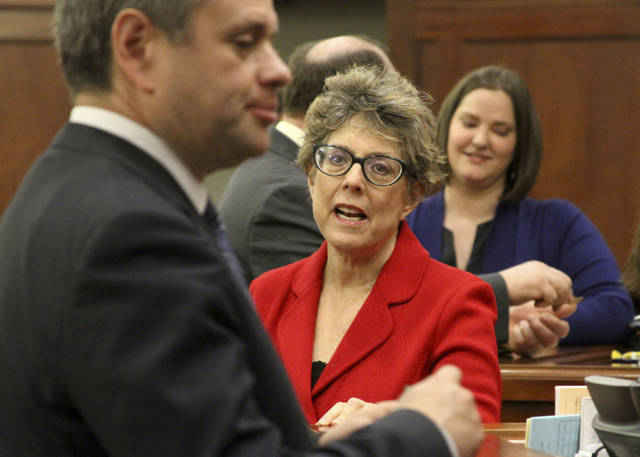ANCHORAGE, Alaska (AP) — Seven people who are considered dead by the state of Alaska asked for absentee ballots for a hotly contested state House race in last week’s primary election. Two others told election officials they didn’t vote, even though state had absentee ballots in their names.
The seven applications requesting ballots in the names of dead people were rejected, and no ballots were sent out.
Those were among the irregularities involving House District 15 in Anchorage, where three votes separate the two candidates.
Aaron Weaver holds a narrow lead over fellow Republican Rep. Gabrielle LeDoux, who was targeted by the state GOP as a turncoat for caucusing with the Democrats.
Alaska state law favors counting questioned ballots so voters are not disenfranchised. The state says it will not reject ballots without clear evidence that the voter didn’t cast the ballot or it is an improper ballot.
“The integrity of our elections is vital to our democracy,” Division of Elections Director Josie Bahnke said in a statement. “The division will continue to look into this matter throughout the week and remove any ballots that we determine should not be counted.”
The candidates and the state Republican party were briefed on the situation Monday.
Neither LeDoux nor Tuckerman Babcock, the head of the Alaska Republican Party, returned messages left Monday afternoon. A telephone listing for an Aaron Weaver in Anchorage rang unanswered.
The state plans to count about 250 absentee and early votes that don’t have authenticity concerns Tuesday, said Carol Thompson, the absentee votes manager for the Division of Elections. It will then count ballots that have concerns to see if it changes the election outcome.
The state estimates there are up to 20 ballots with authenticity concerns.
The vote will not be certified until Saturday, when all races become final.
There were other issues with the absentee ballot process for the east Anchorage seat in the Alaska House of Representatives.
The state said it always attempts to reach voters when ballots come back as undeliverable, to get them new ballots. However, in this district, the state could not reach more than 50 percent of the people.
The state did go back and was able to match signatures and voting records of most of those voting absentee.
For the others, the state tried calling the voters to see if they voted and where they were now living. Some numbers were not in service or there were no answers at other places. Of the people they did reach, some confirmed they voted, and two said they did not. The state said it will not count those two ballots.
When absentee votes are counted Tuesday, those in the Anchorage District will not be mingled in with others, and instead will be kept separate with their envelopes. “This will ensure that any votes later identified as improper can be subtracted from the vote totals,” the release says.
The ballots that appear to be legitimate will be counted.
“The division will then count the absentee ballots that do raise authenticity concerns, but about which the division does not currently have evidence to merit rejection, to see if those votes would affect the outcome of the primary election,” the release says.
The state will provide a provisional count Tuesday, but election workers will continue to determine the legitimacy of those ballots until the election is certified Saturday.


